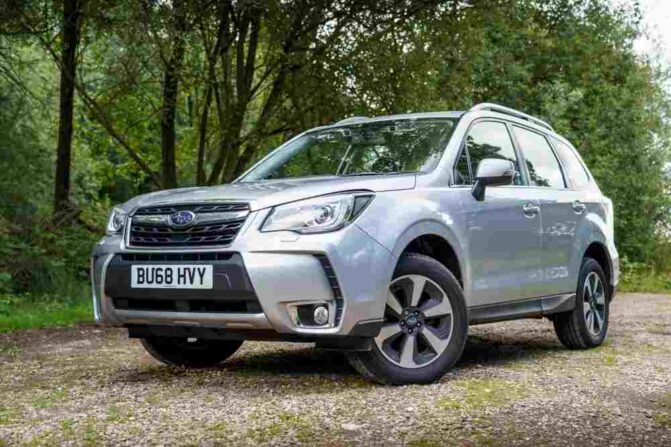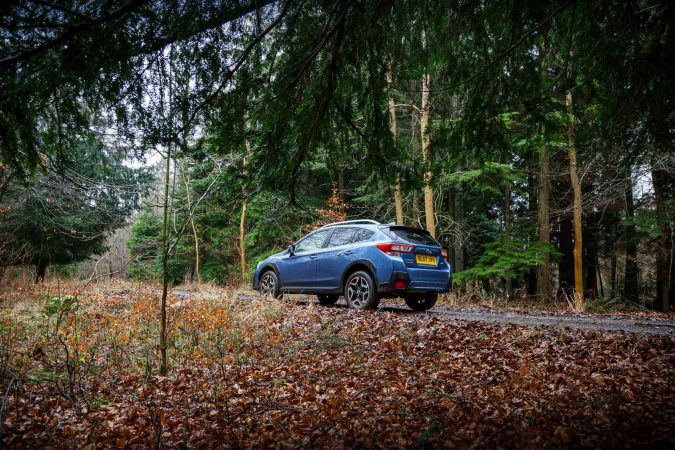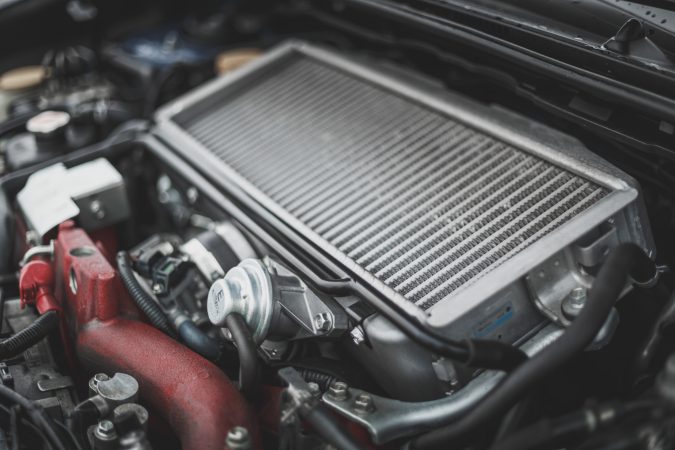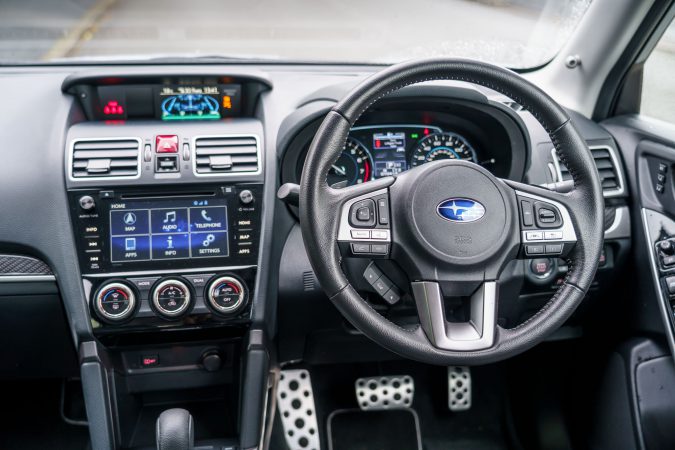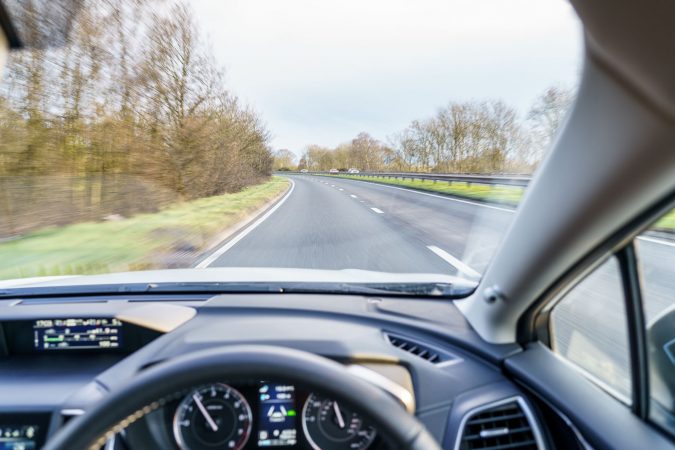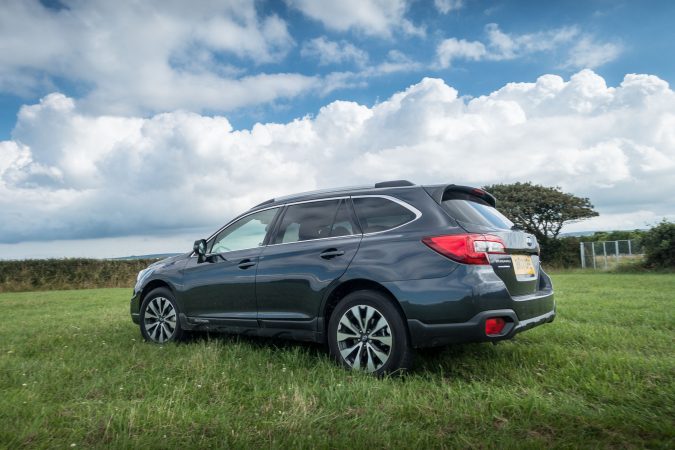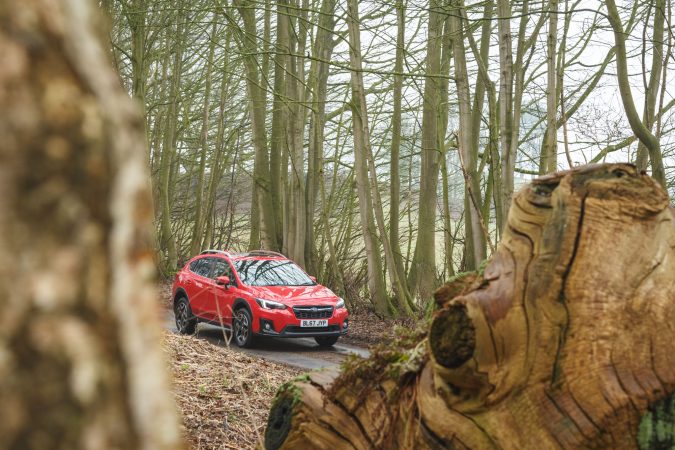Subaru is a Japanese car company, formerly known as Fuji Heavy Industries. It has built a dedicated fanbase over the years due to its off-roading capability. Not to mention, their unique Boxer engines. In addition, high-performance potential alongside its well-known reputation for Subaru reliability.
Historically, Subaru was very reliable and known for its high standards of build quality. However, since the early 2000s, they have suffered from several bad engineering decisions which in turn may have started tarnishing their reputation.
In the 1990s Subaru was known as a maker of extremely dependable and over-engineered vehicles. Their World Rally Championship victories with Colin McCrae behind the wheel only further boosted their popularity with the public.
In 1996 Subaru’s US sales figures increased by 21.03%, the biggest leap in the company’s history since 1979 after which they had been on a constant gradual decline.
With this rise in popularity saw a rise in ownership which had led to the widespread knowledge of Subaru’s infamous head gasket issues.
- Blown Head Gaskets
- Most Common Problems
- Are Subaru Cars Reliable?
- Reliability Sorted By Year
- Reliability Rating
- Subaru’s Current Line-Up
- Final Thoughts
- Frequently Asked Questions (FAQs)
Blown Head Gaskets
Blown head gaskets are an issue that has plagued Subaru models for many years, with this being most prevalent from 2003 to 2009.
Upon examination of the long-term quality index by Dashboard Light.com, for the best-selling model at the time (the Subaru Outback) we can see a spike in defect rates from 18% to 23%. This was mostly due to head gasket issues that took place after the warranty period had expired.
Blown head gaskets have been an issue with Subaru since the mid-1990s. However, this has only become widespread knowledge outside of enthusiast circles since the early 2000s.
This fault usually occurs somewhere after the 75,000-mile mark. Apart from blown head gaskets, Subaru’s of this era are generally pretty reliable and have good value for money however a blown head gasket is not a trivial or cheap issue.
Why The Head Gaskets
Subaru’s head gaskets are prone to failure for several reasons, all of which make them the main source of bother for owners and potential buyers.
Experimental engine tech works wonders in the world of rallying where power comes first and longevity second, but the exact opposite takes priority on the street. Subaru’s downside is also one of their unique selling points – the Boxer engine.
The gaskets are made of thin metal sheets coated in a graphite-like material. This combination is known as a ‘composite type’ head gasket and is viewed as outdated and prone to failure. A more reliable type of head gasket is MLS (multi-layered steel) which is both more widely used and less likely to break.
The issue of a fragile head gasket type was only magnified by Subaru’s idiosyncratic engine layout. The boxer 4-cylinder horizontally opposed engine, loved by many for its tunability and unique sound, has two cylinder head gaskets instead of the one featured on more conventional inline-4 engines.
Replacing these is both a time-consuming and expensive job and not something a mechanic will be easily able to sort in an afternoon (unless you are dealing with a well-equipped Subaru specialist).
Subaru waited until 2011 to update their materials and from then on the problem of blown head gaskets ceased to exist.
Subaru Problems
While Subaru has a reputation for producing durable and reliable vehicles, there are some common problems and issues that owners should be aware of. In this section, we will discuss the most common problems faced by Subaru owners and what to look out for.
Subaru Reliability, Common Problems #1: Excessive Oil Consumption
One common problem with Subaru vehicles is excessive oil consumption. Many customers have complained about using up more oil than usual in various models. Although some models suffer from this more frequently, it is advisable to avoid the 2011-2014 Forester, 2012-2013 Impreza, and 2013 Outback if you are concerned about this issue.
Subaru Reliability, Common Problems #2: Defective Head Gaskets
Another serious issue is the defective head gaskets. This problem led to significant engine repairs as there were leaks occurring between the engine block and the cylinder head. Subaru extended the powertrain warranty due to the widespread nature of this issue. It’s crucial to be aware of this problem, especially if you are considering purchasing a used Subaru.
Subaru Reliability, Common Problems #3: Glitchy Infotainment Systems
Subaru’s Starlink infotainment system has faced numerous software problems, leading to customer complaints about freezing displays, lockup, unresponsiveness, rebooting, and spotty connections. The display can also stop working entirely. This issue is particularly common with many of the 2018 models.
Subaru Reliability, Common Problems #4: CVT Transmission Issues
Continuously Variable Transmission (CVT) issues are also a common problem in Subaru vehicles. Some drivers have experienced shuddering, loss of power, and even complete transmission failure. Subaru has taken steps to address this issue by extending the warranty on the transmission in some models. Nevertheless, it remains a concern for many owners.
Subaru Reliability, Common Problems #5: Suspension Problems
Subaru vehicles, particularly the Outback and Forester models, have been known to experience suspension problems. Issues include clunking noises, excessive vibration, and premature wear of suspension components. Regular maintenance and inspection are crucial to prevent these problems from becoming more severe.
Subaru Reliability, Common Problems #6: Air Conditioning Problems
Many Subaru owners have reported problems with the air conditioning system. Common issues include weak airflow, strange noises, and the AC not cooling properly. In some cases, a simple recharge of the refrigerant may solve the problem, but other times it may require more extensive repairs.
Subaru Reliability, Common Problems #7: Fuel Pump Failure
Some Subaru models have experienced fuel pump failures, leading to poor engine performance, stalling, and even a no-start condition. They’ve issued a recall for certain models to address this issue, so it is essential to check if your vehicle is affected and get the necessary repairs.
Subaru Reliability, Common Problems #8: Windshield Cracks
Some owners have reported windshield cracks developing without any impact. The cracks seem to appear spontaneously, often starting from the edge of the windshield. This issue is particularly common in newer Subaru models.
Subaru Reliability, Common Problems #9: Oil Leak from Camshaft Position Sensor
The camshaft position sensor in some Subaru vehicles is prone to oil leaks. Over time, oil may leak from the sensor and cause a mess in the engine bay. It is essential to address this issue promptly to avoid further complications.
Subaru Reliability, Common Problems #10: Transmission Cooler Hose Leak
Subaru vehicles equipped with automatic transmissions may experience a leak from the transmission cooler hoses. This leak can lead to a loss of transmission fluid and, eventually, transmission failure if not addressed promptly.
Subaru Reliability, Common Problems #11: Excessive Brake Pedal Travel
Some Subaru owners have reported excessive brake pedal travel, meaning the pedal needs to be pressed further than usual to achieve the desired braking force. This issue can be due to air in the brake lines, worn brake pads, or other brake system problems.
Subaru Reliability, Common Problems #12: Electric Power Steering Failure
Subaru vehicles equipped with electric power steering may experience a failure of the power steering system. This failure can lead to a loss of power steering assistance, making the vehicle harder to steer. Subaru has issued a recall for certain models to address this issue.
Subaru Reliability, Common Problems #13: Radiator Leak
Some Subaru vehicles may develop a leak from the radiator, leading to a loss of coolant and, potentially, overheating. It is crucial to address this issue promptly to avoid further engine damage.
While Subaru vehicles are generally reliable and durable, they are not without their issues. Excessive oil consumption, defective head gaskets, glitchy infotainment systems, CVT transmission issues, suspension problems, and air conditioning problems are some of the most common issues faced by Subaru owners. Regular maintenance and timely repairs are crucial to ensure the longevity and reliability of your Subaru vehicle. Be sure to keep an eye out for these common problems and address them promptly to keep your Subaru running smoothly for years to come.
Are Subarus Reliable
The simplest solution is to simply not buy a Subaru car from 1995 to 2011 unless it has a full service history including a head gasket replacement.
If not then you could potentially be forking over a large sum of money to get this issue fixed which judging by Subaru’s track record is an inevitable issue.
You can tell if the head gasket is blown as the engine will leak coolant. So, after a short drive, the engine will be prone to overheating.
Earlier Subaru’s suffered from internal leaks and later models from external which are naturally easier to spot.
Look for an oil leak around the head and crankcase or a puddle of coolant on the ground under the car.
Pros of Buying a Subaru
- Safety Features – Safety is one of the main advantages of buying a Subaru. The vehicles come equipped with advanced safety features, including EyeSight technology, which has helped Subaru models earn a Top Safety Pick+ designation from the IIHS. This ranks them higher than many competitors, making them a safe choice for families.
- Unique BOXER Engine – Subaru vehicles are powered by a unique BOXER engine, which is considered to be more reliable, stable, and powerful than a traditional engine configuration. While there have been some issues with engines over the years, most loyal Subaru drivers claim that the engines last a long time if properly maintained.
- Standard All-Wheel Drive – Subaru is known for providing standard all-wheel drive (AWD) on most of its models, making them suitable for off-road adventures and driving in cold-weather regions.
- Advanced Technology – Subaru is a leader in technology and features. Most Subaru models come equipped with advanced technology that is ahead of other brands, enhancing the driving experience.
- Fuel Efficiency – Many Subaru models are fuel-efficient, which helps in saving money at the gas pump. This is an advantage for those who are concerned about the environment and fuel costs.
Cons of Buying a Subaru
- Higher Initial Cost – Subaru vehicles are not cheap compared to other brands. The advanced technology and standard AWD contribute to the higher price tag. Also, there are fewer incentives available, which means you might pay more upfront.
- Rust and Corrosion – Subaru vehicles have been known for rusting and corroding, especially in cold-weather regions where road salt is used. This is something to consider if you live in an area where rust is a common issue.
- Average Performance – While Subaru focuses on reliability and functionality, the performance of its vehicles is average compared to other brands. If you are looking for a high-performance vehicle, Subaru might not be the best choice.
- Higher Insurance Cost – Because Subaru vehicles have a higher initial cost, the insurance cost is also higher. This is something to consider when calculating the total cost of ownership.
- Repair and Maintenance Costs – According to RepairPal, the cost of maintenance and repair for Subaru vehicles is average compared to other brands. However, the severity of the problems that occur appears to be mildly higher, which might lead to more expensive repairs.
Subaru Forester Reliability By Year
Since revising their head gasket design Subaru’s reliability has improved – it isn’t perfect but it is an upgrade from their previous infamous reputation.
Subaru’s popularity peaked in the US in the early 2010s with sales figures skyrocketing. Their yearly sales figures increased by an average of 20.85% each year which is a phenomenal achievement.
This can be attributed to Subaru having a small roster of very capable cars. Plus, each one features a very distinct purpose and buyer in mind. Whether it is the Forester for a family who likes to occasionally head off the beaten track or the Impreza WRX designed with hardcore car enthusiasts in mind.
Each of these vehicles scored above average on JD Power’s review scale;
Subaru Reliability Rating
Despite this achievement, Subaru was far from establishing a solid reputation as a bulletproof purchase. As of 2016, Subaru’s reliability dipped again which in turn damaged its public image.
They dropped to 18th place (out of 36) on the reliability table for the Reliability Index on Which?.
The 4th generation of Subaru Forester suffers from axle and suspension problems, which accounted for 38.43% of reported problems from owners.
The Forester also was prone to a number of interior functions failing including the air conditioning, and also poor engine idling.
On average, Forester owners paid $1180 for their cars to be fixed, according to a study by Which? carried out in 2018. It should be mentioned that this included labor costs.
The Legacy, Subaru’s everyday sedan, was prone to a myriad of engine problems not limited to turbo failure, radiator failure, and problems with the starter motor. These accounted for 23.5% of reported owner problems with axle and suspension issues coming in second for the most common defects.
On average repairs for Subarus cost $1050, once again this is including labor.
Across all Subaru models, the average cost of a repair is a sizeable $695. With this, you have to take into account that this includes a labor fee. And, the fact that labor costs rising by at least 40% since 2015 according to recent figures. Furthermore, this study was carried out in the UK where Subaru’s are rarer than they are in the States.
Ordering replacement parts in the UK can be more expensive than more common Japanese makes such as Toyota or Honda. Nevertheless, none of these figures inspire confidence in potential Subaru buyers. Furthermore, it highlights Subaru’s unreliability was still present across its model range.
New Subaru Models
In 2019 Consumer Reports ranked Subaru as their #1 car brand in terms of overall performance and value.
However, they also ranked Subaru at #7 for repairs and reliability, 5 spots lower than their previous ranking in 2018. Clearly, Subaru is on the right track but is still encountering problems.
Recently Subaru has issued a number of recalls for major faults, and with only a small roster of cars in production, this reflects a far more substantial dent in their reputation than say a recall by Mercedes which has triple the number of models on offer.
In early 2019 Subaru issued a recall for their Outback. This was due to a loose bolt possibly causing the brake pedal area to deform. Consequently, this could reduce braking performance, and increase the risk of a crash.
Around the same time, Subaru also issued two recalls for 671,225 Subaru Impreza’s due to a pair of different issues which caused a loss of engine power. The first was due to the risk of a crankcase ventilation valve and an oil flow control device separating and letting valve components into the engine. The second was due to improperly programmed engine control modules.
In 2020 Subaru had to recall their new XV Crossover due to a seatbelt issue. Failings like this do not help to strengthen their public image.
Subaru Reliability Myth
In conclusion, Subaru is a brand with great potential let down by some reliability issues. If you are dead set on buying a Subaru look for models with extensive service history – or prior to 2011 replaced head gaskets.
They provide great performance and value for money compared to rivals. Although, this does come at a price – a potentially hefty repair bill.
When considering buying a Subaru don’t let a seemingly great deal blind you, always do your research, and consider that some more expensive rivals (such as a Toyota CHR, instead of an XV) could be far less hassle in the future.
How has your Subaru experience been? Have you experienced problems with your CVT gearbox?
Subarus: Facts on Reliability and Common Problems
- Subaru is a popular choice for outdoor enthusiasts due to its solid reputation for reliability, although some models have dragged down its overall reliability scores.
- According to RepairPal, Subaru has an overall reliability rating of 3.5/5, which is better than average, and ranks 14th out of 32 car brands. The average annual repair cost is $617.
- Subaru owners visit the repair shop 0.3 times per year for unscheduled repairs, which is slightly better than the average of 0.4 times across all models. 13% of Subaru shop repairs are deemed severe, which is slightly higher than major issues on all models.
- The two most complained-about models are the Forester and Outback, but both lineups have produced some of the most reliable models from Subaru. The new three-row SUV, Ascent, hurts Subaru’s overall reliability rating due to several trouble spots such as transmission, climate system, power equipment, and in-car electronics.
- Excessive oil consumption is a common problem reported by Subaru owners. The affected vehicles are Forester (2011-2014), Outback (2013), and Impreza (2012, 2013).
- Software problems are common with Subaru’s infotainment system, Starlink, which affects the Outback (2018), Legacy (2018), Crosstrek (2018), and Impreza (2017, 2018).
- The faulty head gasket is one of the most common problems with Subaru, which caused engine oil leaks. This defect was widespread and lasted for about five years and two rounds. The affected models are the ones produced within that time frame.
- The most reliable Subarus include the 2019 Outback, which has a predicted reliability rating of 5 out of 5 by Consumer Reports, the 2020 Forester with a predicted reliability rating of 5 out of 5, and the 2021 Crosstrek, which has an overall rating of 81/100 by J.D. Power.
- The least reliable Subarus include the 2012 Impreza due to the sudden unintended acceleration issue, the 2021 Ascent due to numerous reliability issues, and the 2021 WRX, which has a low predicted reliability rating of 2 out of 5.
- Overall, Subaru has average reliability scores, but many of its models are still reliable and worth buying used, especially the Outback and Forester, which are among the most reliable models from the brand.
Subaru Reliability: Frequently Asked Questions (FAQs)
If you’re still unsure about Subaru reliability, our FAQs here might help…
Where Does Subaru Rank In Reliability
As of 2022, Subaru’s reliability ranking is just about average. According to RepairPal’s surveys, Subaru scored 3.5 stars out of 5.0. Note, that this was an average across 345 unique Subaru models. The median annual repair cost, according to RepairPal’s findings, is around $617. Once again, this is slightly above average. This ranks Subaru 14th out of 32 other car brands that were included in that survey.
Where Are Subarus Made
Subarus around the world come from just 5 primary assembly plants – 4 of which are located in Japan. These are the Subaru-chō, Yajima, Otakita, and Oizumi plants, all found within the Gunma Prefecture. These factories crank out the BRZ sports car, a wide variety of other Subaru models for the JDM and other markets, Kei trucks, as well as components such as transmissions. Meanwhile, the other main Subaru factory is found in Lafayette, Indiana. Here, Subaru puts together all the models that they currently sell in North America. These include the Legacy, Impreza, Outback, and Ascent.
Who Makes Subaru
You might imagine that Subaru makes… Well, all Subaru cars. However, this is somewhat more complicated now, owing to Toyota’s involvement. Toyota is Subaru’s single largest shareholder, owning 20% of the brand. Being a part of the Toyota Group, Subaru thus gets access to Toyota’s vast network of resources, such as raw materials and its global supply chain. Subaru and Toyota have also worked closely on numerous occasions, like developing the GR86-slash-BRZ sports cars. Subaru is still a very small company compared to Toyota. Yet, there’s hope that Toyota’s vast resources could help Subaru in the long run, like with joint research into hybrids and EV powertrains.
Is Subaru Japanese
Yes, Subaru is a quintessentially Japanese brand. The name, Subaru, even translates to Unity in English. Subaru was founded back in Japan in 1915, as Fuji Heavy Industries. Since then, it switched to making aircraft, and scooters, before later making its first car in the 1950s. Their global headquarters can be found in Japan, as well as the majority of their factories. In fact, all Subarus sold worldwide are put together in just 5 assembly plants, 4 of which are in Japan. Three-quarters of Subaru-branded vehicles came from these 4 factories alone. On the other hand, Subaru’s other major plant is in Indiana, assembling cars for the North American market.
Does Toyota Own Subaru
Toyota has long been a shareholder of the Subaru brand. As of 2022, they’re Subaru’s single biggest shareholder, owning 20% of the company. This was increased from 16.83% back in late 2019. Toyota doesn’t technically own the entirety of Subaru as a sort of subsidiary and doesn’t seem to have any plans for that. However, they do have significant leverage over the Subaru brand. This is good for Subaru though, as a much smaller company. As a part of the Toyota conglomerate, Subaru gets access to Toyota’s vast network of resources. This includes raw materials, supply chains, or perhaps taking part in joint research.
Are Subarus Good Cars
As of a recent study done in early 2022, Subaru is among the most trusted and dependable brands on the market today. Consumers adore Subarus for what they can get for the price. Subaru models are robust, versatile, practical, and have a highly dedicated fanbase around them. Although, Subaru has slipped somewhat when it comes to reliability. Compared to other high-scoring Japanese marques, Subaru falls a bit short. Still, they’re decent reliable and will cost you fewer in repairs compared to most other brands. Upkeep, maintenance, and other running costs are also just about average.
How Long Do Subarus Last
While not the most reliable among Japanese automakers, Subaru makes decently reliable cars. As such, you can expect your Subaru to stay on the road and run smoothly for quite a while. Many owners have easily gotten 200,000 to 250,000 miles out of their Subarus before major repairs and restorations are needed. With diligent care and maintenance, you could perhaps even break past 300,000 miles without a sweat. In other words, that’s between 10 to 15 years of fairly reliable and dependable ownership. According to Subaru’s own research, 97% of cars sold in the last 10 years are still on the road today.
Similar Case Studies
Before you are part with your money take a look at our other case studies on reliability below.
Volvo Reliability
Hyundai Reliability
Jeep Reliability
Fiat Reliability
MINI Cooper Reliability

